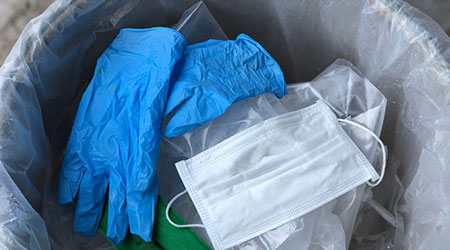Hospital emergency departments generate significant amounts of environmentally harmful waste which could be reduced through basic changes to disposal policies and practices, according to an article on the Medical Xpress website.
Researchers from Massachusetts General Hospital (MGH) have found that improvements to the waste system, such as switching to reusable items, better waste sorting and recycling can help the environment and bottom line.
Healthcare facilities in the U.S. generate 6,600 metric tons of waste each day. The MGH investigation is the first to quantify and characterize the volume of waste emanating from emergency departments.
Among the findings was that 85 percent of all items disposed of as regulated medical waste, did not meet the criteria.
Handling medical garbage inappropriately can be dangerous to the environment and the general public, according to an article on Newswire website.
For instance, medical wastes release airborne aerosols, some of which contain pathogens. Respiratory Syncytial Virus (RSV) that causes lung infections such as pneumonia and influenza, for example, originates from medical wastes.
Read the full Medical Xpress article.

 UF Health Hospitals Rely on Green Globes to Realize Their Full Potential
UF Health Hospitals Rely on Green Globes to Realize Their Full Potential How Healthcare Facilities Can Be Truly Disaster-Resilient
How Healthcare Facilities Can Be Truly Disaster-Resilient TriasMD Breaks Ground on DISC Surgery Center for San Fernando Valley
TriasMD Breaks Ground on DISC Surgery Center for San Fernando Valley Bigfork Valley Hospital Falls Victim to Data Breach
Bigfork Valley Hospital Falls Victim to Data Breach AI-Driven Facilities: Strategic Planning and Cost Management
AI-Driven Facilities: Strategic Planning and Cost Management